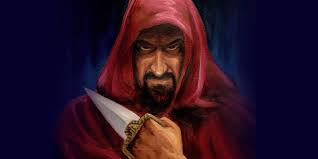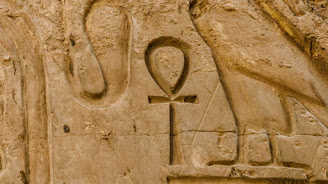According to the Prophet Moroni, a testimony of the truthfulness of all things, including the Book of Mormon, comes through the Holy Ghost. (Moroni 10:4) I can testify through personal experience that this is true. While one does not gain a testimony of the Book through intellectual study, once one has the testimony, it can be strengthened by such study. I gained my testimony by Moroni's formula when I was 17 years old and, being somewhat scholarly myself, have enjoyed the study of Book of Mormon scholars ever since.
One field of research that I find fascinating is the study of the etymology of Near Eastern words in the Book. Names of people and places are particularly of interest because the name often gives clues into the history and character of the individual. For example, Nephi's name is of Egyptian origin (nfr), which means goodly, fine, or fair/beautiful. When Nephi wrote that he had been born of goodly parents, he was making a pun of his own name. (https://knowhy.bookofmormoncentral.org/knowhy/what-is-so-good-about-nephis-name) His name tells us a lot about the man.
In the Book of Helaman, we find a civil conflict which occurs following the death of the Chief Judge, Pahoran, and involving three of his sons: Pahoran, Paanchi, and Pacumeni. These names, according to scholars such as Hugh Nibley are derived from Egyptian words. For example, the preface pa means the. So Pa-followed by a descriptive word, tells us something about the man.
Pa-horan: horan is associated with the Egyptian governor of Syria, Pahura. The name Pahoran most likely refers to the governor or Chief Judge of the Nephites.
Pa-anchi: anchi is related to ankh, the Egyptian symbol of life or for the living god. The hieroglyph ankh was commonly used to describe oaths the the living God. (Remember Nephi's oath with Zoram? - as the Lord liveth and as I live . . . .)
According to Book of Mormon scholar, Matt Bowen, Paanchi's rebellion as described in the Book of Helaman set up the tradition of blood oaths and secrecy that became the hallmark of all secret combination, including the Gadianton Robbers who were involved with the assassination of Pahoran the Younger. It is interesting that there was a similar plot in ancient Egypt by a man named Kherihor (Korihor?) to usurp the throne of Pharaoh. He then put his own son, Paanchi, on the throne.
For further information on the use of Egyptian names in the Book of Mormon, see the following link.
Egyptian names in the Book of Mormon
BTW, the third brother, Pacumeni, was the dark horse, so to speak. Unlike his brother, Paanchi, he supported his elder brother, Pahoran, in his appointment as Chief Judge. When Pahoran was assassinated, Pacumeni was chosen by the will of the people to fill his place. The implication of his name cumeni refers to being hidden. So, over-simplification, I admit, we have The Governor, the Blood Oath Conspirator, and the Hidden One or, as I said, the dark horse.
Are these names important? Now ask yourself: Could an 19th Century American farm boy have written this book?
© Kathleen Rawlings Buntin Danielson August 2020



















